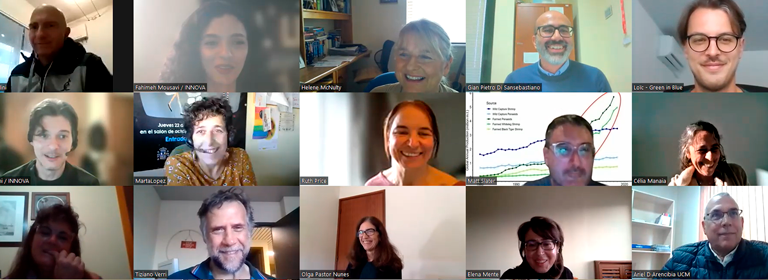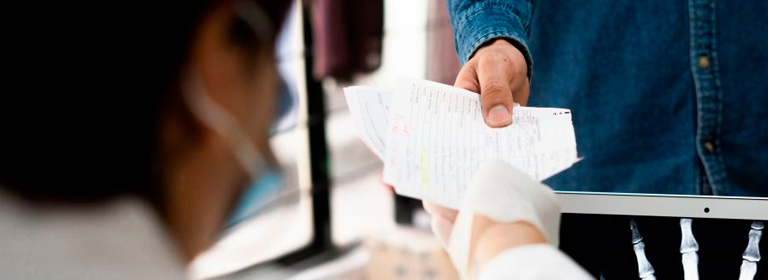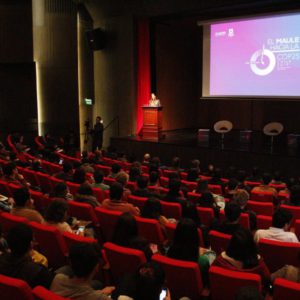The initiative, subsidized by the HORIZON-RIA contest of the European Economic Community under the title AWARE, has a deadline of four years to validate a proposal for wastewater use in urban aquaculture. The Universidad Católica del Maule is the only collaborating institution located outside Europe.
 Live and direct, from a dozen countries, those responsible for a project financed by the European Economic Community (EEC), which hopes to contribute to the development of «Kilometer Zero Products,» participated in a remote meeting to launch the initiative. The Universidad Católica del Maule (UCM) attended the conference as the only collaborating entity outside Europe.
Live and direct, from a dozen countries, those responsible for a project financed by the European Economic Community (EEC), which hopes to contribute to the development of «Kilometer Zero Products,» participated in a remote meeting to launch the initiative. The Universidad Católica del Maule (UCM) attended the conference as the only collaborating entity outside Europe.
The project is titled AWARE (Aquaponics from Wastewater Reclamation) and brings together twenty academic, government, and scientific institutions.
«We are going to provide comparative data, verifying everything that has to do with the microbiology of the water before and after going through certain purification processes,» said the researcher in charge of the initiative at the UCM, Ariel Arencibia, who was invited to join the project by the University of Salento.
“The pilot plant that purifies domestic wastewater in the town of Fasano, in the Puglia region of Italy, will be used to study the use of this water for fish farming. The framework will be to promote the circular economy and zero-kilometer food, with the local production of high-quality protein,” said the director of the Ph.D. in Translational Biotechnology at the Chilean campus.
«The aim of the project —he pointed out— is to verify that these waters have been purified and are suitable for fish consumption. If the fish grow and develop a cycle, and above all, the safety of this meat as human food […]. If the project is successful, at some point, the filtration system could be implemented in Chile. The potential is that these waters serve firstly for aquaculture and, secondly, for the production of plants in hydroponic and greenhouse crops.»
Regarding the waters that will be analyzed, the scientist —a member of the Center for Biotechnology of Natural Resources (CENBio) of the UCM — did not rule out wastewater from agribusiness that avoids pesticides. “I have faith in the wastewater from wineries with certified organic wines to begin from there. Since they are vineyards that have encouraged organic production, perhaps offering them added value would encourage them even more”, he highlighted.
Arencibia —a biotechnologist by profession— will work on this endeavor with his colleagues Rodrigo Morales and the microbiologist Aparna Banerjee, both members of the faculty of the before-mentioned doctorate. The initiative has a period of four years to validate the proposal.
Kilometer Zero or “Zero Waste” foods have gained ground in Europe for using less fuel in transport and thus reducing their carbon footprint. They constitute a component of the circular bio-economy and sustainability. Their main characteristic involves the short distance between their place of production or collection and the point of sale or final consumption.













